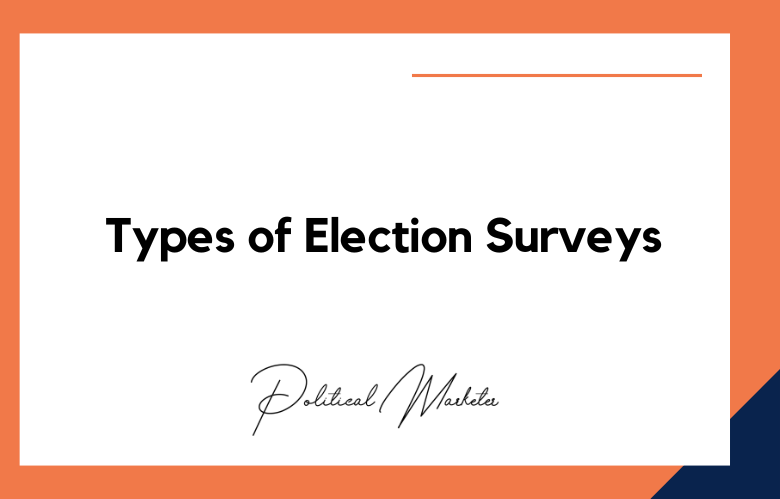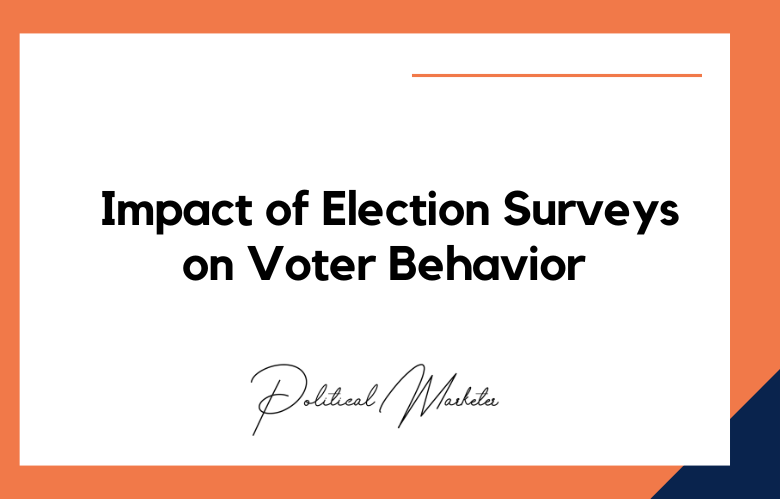As an elected official, you are a target for identity thieves, hackers, and malicious actors looking to gain access to your accounts. Political figures often have sensitive information stored in their accounts that could be used against them if they fall victim to credential theft or account takeover.
Fortunately, some steps can be taken to protect politicians from these digital threats.
What is Account Takeover/Credential Theft?
Account takeover and credential theft are two related forms of cybercrime involving the unauthorized use of someone else’s login credentials.
In account takeover, attackers gain access to an existing account and may use it for malicious purposes such as conducting phishing scams or spreading misinformation.
Credential theft involves stealing someone’s login information and using it to create a new account in their name. Both methods can access sensitive data or commit fraud in the victim’s name.
How Can Politicians Protect Themselves?
The best way for politicians to protect themselves from credential theft is by taking proactive measures.
They should change their passwords frequently and use strong passwords with a mix of numbers, letters, and symbols that are difficult for hackers to guess.
Two-factor authentication (2FA) is also recommended as it adds an extra layer of security by requiring users to enter a short code via text message before logging into their accounts.
Politicians should also avoid using public Wi-Fi networks when accessing sensitive data, as these networks are often unsecured and vulnerable to attack.
Lastly, politicians should be aware of common scams, such as phishing emails, which aim to steal login credentials by pretending to be legitimate companies or organizations requesting user information.
They should always verify the source of requests before providing personal information or clicking on links in an email message.
How Can Politicians Prevent Account Takeover and Credential Theft?
Account takeover and credential theft are, unfortunately, a reality for politicians. These malicious attacks can be damaging to both the politician’s reputation and their political career.
Politicians need to take preventative measures to ensure their online accounts remain secure from such threats. Here is a look at what steps politicians should take to avoid account takeover or credential theft.
Account Takeover/Credential Theft Prevention Basics
Account takeover/credential theft prevention starts with strong passwords.
Passwords should never be shared with anyone else and should include at least 12 characters (including upper-case letters, lower-case letters, numbers, and special symbols).
It’s also essential for political figures to use two-factor authentication whenever possible.
This means that in addition to entering a password, users must also enter an additional verification code sent via text message or email (or generated by an authenticator app) before being allowed access to an account.
We were necessary for all accounts used by political figures to be monitored regularly for suspicious activity.
Protecting Politicians From Account Takeover and Credential Theft
The political landscape has become increasingly digital over the years, making it all the more important for politicians to protect their online accounts from cybercriminals.
Account takeover and credential theft are serious issues that have the potential to compromise an individual’s online reputation, as well as their ability to communicate with constituents.
Fortunately, some steps can be taken to ensure a politician’s data remains safe from malicious actors.
Secure Your Devices
One of the most critical steps politicians can take to protect themselves from account takeover or credential theft is to secure their devices properly.
This means ensuring all devices have strong passwords, two-factor authentication, anti-virus software, and other security measures.
By taking these steps, politicians can make it much harder for hackers to access their accounts or steal credentials.
Educate Yourself
Another way politicians can protect themselves from account takeover or credential theft is by educating themselves on how these attacks work and how hackers use them to access accounts.
There are many ways that hackers can attempt account takeover or credential theft, so politicians must understand how they work to better protect themselves against them.
Be Careful With Your Data
The last step politicians can take is to be careful with their data. This means avoiding giving out personal information online, using strong passwords on all accounts, and being wary of phishing attempts or malicious attacks on their data.
By taking these precautions, politicians can better protect themselves against potential attacks and protect their data from prying eyes.
Online Security Best Practices
Following essential cybersecurity best practices is the best way to prevent account takeover and credential theft.
This includes regularly changing passwords, avoiding weak or reused passwords, enabling two-factor authentication (2FA) when available, and understanding common phishing tactics.
It’s also essential to remain vigilant about suspicious account activity, such as strange logins or unfamiliar devices used to access funds.
Suppose a politician suspects that their account has been taken over or compromised in any way.
In that case, they should immediately contact the support team of the affected service and follow their instructions for recovering access to the account.
Depending on the type of attack, it may also be necessary to contact local law enforcement and change passwords on other services where similar credentials were used.
Managed Cybersecurity Services
For politicians who want an extra layer of security for their online accounts, managed cybersecurity services can provide comprehensive protection against account takeover attacks.
These services use advanced technologies such as AI-powered user behavior monitoring and anomaly detection to identify suspicious activity in real-time and take action before any harm can be done.
Managed cybersecurity services can also help detect weak credentials used across multiple sites so they can be replaced with stronger ones before cybercriminals exploit them.
Public Awareness Campaigns
To increase public awareness about the risks associated with account takeover/credential theft, many countries have launched campaigns encouraging people to take basic security precautions when using online services.
For example, the UK government has launched a “Secure your computer” campaign aimed at helping people understand the risks associated with using weak passwords and other insecure practices online.
The Australian government has also launched several public awareness campaigns to educate citizens about the dangers of online identity theft and how to protect themselves from becoming victims of such crimes.
Third-Party Solutions
In addition to public awareness campaigns, third-party solutions can help politicians secure their accounts against attack or unauthorized access.
Many political organizations employ dedicated cybersecurity teams who specialize in identifying potential vulnerabilities in systems and networks as well as implementing security protocols that meet industry standards and best practices.
Some organizations offer managed security services that provide 24/7 monitoring of systems and networks and threat detection capabilities that help identify potential attacks before they happen.
Conclusion:
Account takeover/credential theft is a serious threat facing all online users, particularly politicians, who have sensitive information stored in their accounts.
We are taking proactive measures such as changing passwords regularly, using two-factor authentication, and avoiding public Wi-Fi networks.
By being aware of phishing scams, politicians can minimize the risk of falling victim to these attacks and ensure their accounts remain secure.
Call: +91 9848321284
Email: [email protected]
Account Takeover/Credential Theft Prevention for Politicians: FAQs
What Is Account Takeover In A Political Context?
Account takeover occurs when unauthorized individuals access a politician’s digital accounts, email, social media, or portals, often using stolen credentials to manipulate communications or impersonate the leader.
How Does Credential Theft Happen?
Credential theft typically results from phishing attacks, keyloggers, data breaches, weak passwords, or reused login information across platforms.
Why Are Politicians Prime Targets For Account Takeovers?
Politicians have high-profile online presence, sensitive communications, and access to campaign data, making them valuable targets for cybercriminals, hacktivists, or opposition actors.
What Are The Consequences Of Account Takeover?
Consequences include reputational damage, misinformation posts, leaks of confidential data, voter distrust, and legal liabilities.
How Can Politicians Strengthen Their Account Security?
By using strong, unique passwords, enabling two-factor authentication (2FA), updating credentials regularly, and monitoring login activity.
What Is Multi-Factor Authentication And Why Is It Crucial?
Multi-factor authentication (MFA) adds an extra verification step, such as a code sent to a mobile device, making it significantly harder for attackers to access an account with a stolen password.
How Can Social Engineering Lead To Credential Theft?
Attackers manipulate individuals into revealing sensitive information by pretending to be trusted contacts or support personnel, often over email, phone, or social media.
What Is Credential Stuffing And How Does It Affect Politicians?
Credential stuffing involves using stolen credentials from one breach to access multiple accounts. If a politician reuses passwords, a violation on one platform can compromise others.
Can Public Wi-Fi Lead To Credential Theft?
Yes. Unsecured public Wi-Fi can allow attackers to intercept login credentials and session tokens, especially if proper encryption is not in place.
What Are Early Warning Signs Of An Account Takeover?
Signs include unfamiliar login locations, changes in account settings, unexplained messages or posts, and lockouts from the account.
Should Politicians Use Password Managers?
Yes. Password managers generate and store complex passwords securely, reducing the risk of password reuse and human error.
What Role Do Campaign Staff Play In Preventing Account Takeovers?
Staff members often handle access to multiple campaign accounts, making their training and credential hygiene vital for overall security.
Are Political Campaign Platforms Like CRMs At Risk?
Yes. Campaign CRMs contain sensitive voter, donor, and event data, making them attractive to attackers who could gain access through compromised staff credentials.
What Is The Best Way To Handle A Confirmed Account Breach?
Immediately change passwords, revoke all active sessions, notify affected stakeholders, perform forensic analysis, and, if necessary, release a public clarification.
Can Biometric Authentication Help Prevent Account Takeovers?
Yes. Fingerprint, face recognition, or retina scans add a strong biometric layer that cannot be easily duplicated like passwords.
What Cybersecurity Tools Can Politicians Use To Protect Accounts?
Tools include endpoint protection, anti-phishing software, breach monitoring platforms, identity protection services, and secure VPNs.
How Frequently Should Credentials Be Updated?
At least every 90 days, or immediately after any suspicious activity or breach notification.
Can Third-Party Apps Pose A Security Risk?
Absolutely. Apps connected to social media or email accounts may have excessive permissions and can be exploited if not properly vetted or revoked when no longer needed.
What Legal Frameworks Exist To Protect Politicians From Cyber Intrusions?
Laws like the IT Act (India), GDPR (EU), and the Cybersecurity Information Sharing Act (US) offer protections, though enforcement varies by jurisdiction.
How Can Training Reduce Credential Theft Risks?
Regular cybersecurity awareness sessions for politicians and their staff can prevent human error, promote vigilance, and reduce susceptibility to phishing and impersonation attempts.










